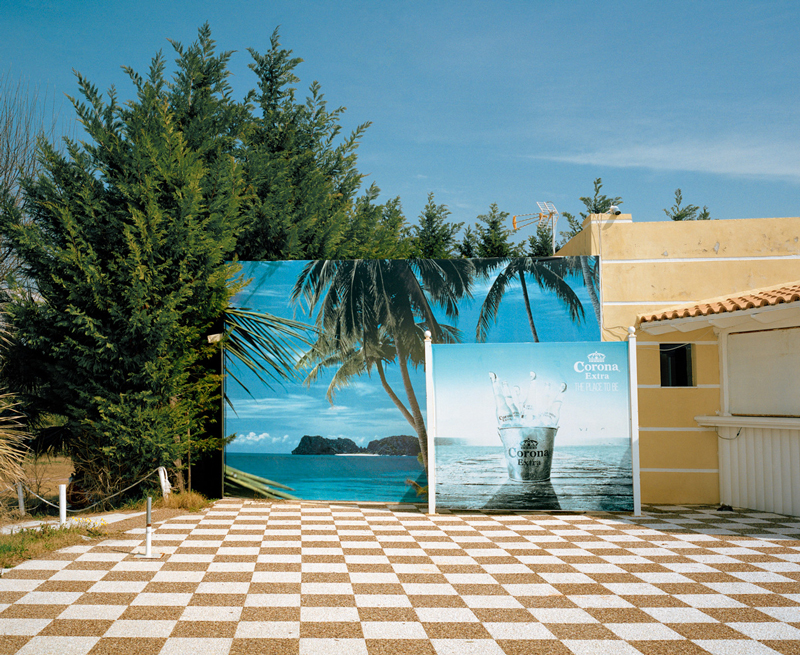
APAD’s guest this week is greek photographer Marinos Tsagkarakis. Marinos was born (1984) and raised in the island of Crete, in Southern Greece. He studied contemporary photography at STEREOSIS Photography School, in Thessaloniki, Greece. He is a member of the collective “Depression Era” that inhabits the urban and social landscapes of the economic crisis in his home country. His work has been featured in numerous exhibitions and international festivals, including Mois De La Photo in Paris, European Month of Photography in Budapest, Thessaloniki Biennale of Contemporary Art, Athens Biennale, FOCUS Photography Festival in Mumbai and Fotoistanbul. Moreover, he has exhibited his photographs in important art spaces such as Benaki Museum (Athens), Maison Européenne de la Photographie (Paris), Museo de Bogotá (Colombia) and several galleries in Canada, USA and Europe.
We are showing some images from Marinos new project Paradise Inn.
The word “Paradise” literally means walled enclosure or recreational and entertainment area, probably derived from the Persian word “Pardes” which is attributed to the walled pleasure gardens of the Great King of Persia. In recent decades, countless of artificial “paradises” were developed around the world and their number still grows faster than ever before. This industry that manufactures an entertainment product of mass consumption meant to satisfy the average man’s need for recreational time and fun, is called tourism.
The tourist industry has drastically intruded the land, transforming it into a product while causing several effects with a severe socio-cultural character. Destinations are in danger of losing their original appearance, structure and identity, through a standardization process that aims to satisfy the tourists’ wishes. What is not understood though, is that this process doesn’t degrade only the final product but mostly affects the local societies which have to survive the low periods relying only on the remnants of a seasonal industry. This ongoing photographic project, which started in 2012, aims to highlight the consequences of this massive and uncontrolled tourist development. In Greece, as in Southern Europe in general, these effects are reflected on the constructed landscape mostly through the unregulated and shoddy architecture, the kitsch and folklore decoration, the construction and adoption of artificial elements and entertainment structures, the falsification of identity and cultural heritage, the violation of the natural environment and finally the desolation that occurs after peak season.
As Marcel Proust said, the only true paradise is the paradise we have lost. Paradise Inn is a tribute to all the lost paradises, in which millions of ordinary people manage to impose their own selves, the desperate experience that anyone could eventually face: the impairment of our quality of life and aesthetics and the loss of use of the natural space.
